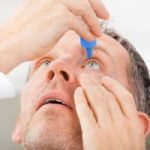 Sjögren’s syndrome may raise the risk of heart attack, stroke and pulmonary hypertension, according to research. Sjögren’s syndrome is an autoimmune inflammatory disease; the body’s immune system attacks the glands where fluid is excreted, like the tear or saliva glands. When this occurs the eyes are unable to produce tears, the mouth becomes very dry and other areas that excrete fluid also become dry. Sjögren’s syndrome is commonly seen in individuals who have other rheumatological diseases, such as rheumatoid arthritis or lupus. The researchers believe that it is the inflammation caused by Sjögren’s syndrome that contributes to the heightened risk of heart attack.
Sjögren’s syndrome may raise the risk of heart attack, stroke and pulmonary hypertension, according to research. Sjögren’s syndrome is an autoimmune inflammatory disease; the body’s immune system attacks the glands where fluid is excreted, like the tear or saliva glands. When this occurs the eyes are unable to produce tears, the mouth becomes very dry and other areas that excrete fluid also become dry. Sjögren’s syndrome is commonly seen in individuals who have other rheumatological diseases, such as rheumatoid arthritis or lupus. The researchers believe that it is the inflammation caused by Sjögren’s syndrome that contributes to the heightened risk of heart attack.
Principal investigator, Dr. Antonio Aviña-Zubieta, said, “This is the first general population-based cohort study comparing the relative risk of heart attacks and strokes in patients with new Sjögren’s syndrome with age, sex, and entry-matched controls; previously we only had limited data on the relative risks in this specific patient group.”
Advertisement
“Our results support the role of inflammation in cardiovascular disease and the need for increased monitoring for coronary artery disease in all patients with this condition, in addition to proper management and modification of their cardiovascular risk factors to reduce the risk of a future heart attack,” continued Dr. Aviña-Zubieta.
Out of 1,176 new cases of Sjögren’s syndrome, 28 patients had a heart attack. Of 1,195 cases of Sjögren’s syndrome, 19 had a stroke. When matched to controls that did not have Sjögren’s syndrome, incidences of heart attack and stroke were higher among those with Sjögren’s disease than without.
Pulmonary arterial hypertension complications affect Sjögren’s syndrome patients
Additional research found that pulmonary arterial hypertension (PAH) complications can affect Sjögren’s syndrome patients. PAH is a condition characterized by a higher risk of heart failure, pulmonary edema, irregular heartbeat and sudden death.
The study looked at 47 patients with Sjögren’s syndrome with no other immune-atips to preventffecting diseases. Participants underwent testing, such as chest x-rays, urine tests and chest ultrasounds. Lung function and blood pressure of the pulmonary artery was also tested.
The findings revealed that 23 percent of patients also had pulmonary arterial hypertension. Furthermore, the condition was more common among younger female patients who were recently diagnosed with Sjögren’s syndrome.
The researchers feel that a larger study must be conducted in order to confirm results.
Other complications of Sjögren’s syndrome
Aside from heart attack, stroke and pulmonary arterial hypertension risk, Sjögren’s syndrome can bring along with it many other health complications, including:
- Extreme fatigue
- Muscle pain
- Dry mouth and eyes
- Arthritis
- Dry, itchy skin
- Dry nose
- Heartburn, indigestion
- Difficulty swallowing
- Painful mouth with ulcers
- Tooth decay
- Inflammation of the blood vessels
- Inflammation of the nerves
- Breathing problems
- Autoimmune hepatitis of the liver
- Bladder cysts
- Lymphoma
- Pregnancy complications
- Scleroderma
- Rheumatoid arthritis
- Lupus
- Polymyositis
Treatment options for Sjögren’s syndrome
There is no cure for Sjögren’s syndrome, so treatment involves treating the affected glands. For example, artificial tears may be prescribed to treat dry eyes along with moisture chamber spectacles, and punctual plugs.
Advertisement
Mouth treatment involves maintaining good oral hygiene, increasing fluid intake, chewing sugar-free gum to produce saliva, sucking on ice cubes for lubrication, using mouth rinses and smoking cessation. Saliva substitutes are another product that can be used to prevent infection and promote saliva.
Medications can be prescribed to relieve symptoms and pain.
Tips to prevent problems associated with Sjögren’s syndrome
In order to prevent complications and problems associated with Sjögren’s syndrome, consider the following tips:
- Get regular dental check-ups.
- Practice good oral hygiene.
- Minimize consumption of sweet or sugary foods.
- Avoid strong perfumed soaps.
- Avoid dry environments.
- Reduce alcohol intake.
- Educate yourself and speak to your doctor about any concerns you may have.
